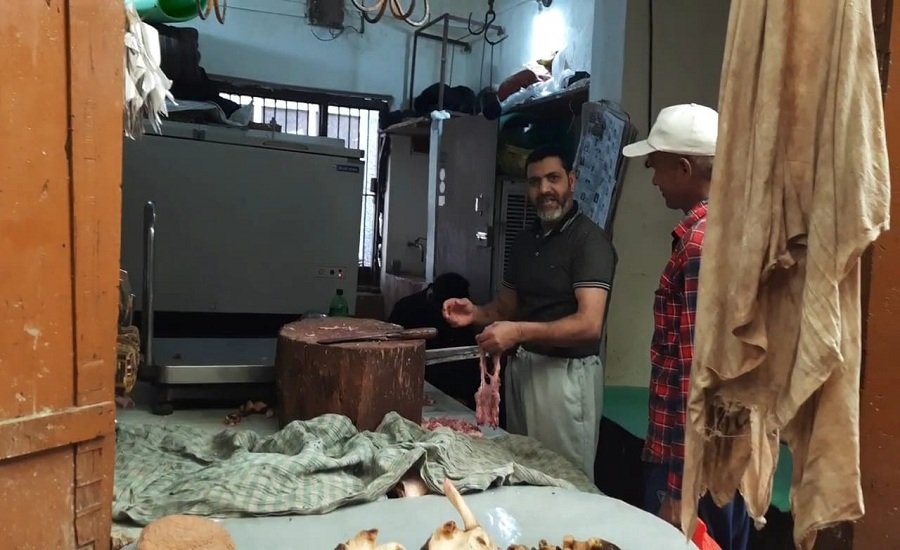
‘Navratri happens every year without us shutting our shops, what is the need now,’ asks a meat trader
Zafar Aafaq | Clarion India
NEW DELHI – The Bharatiya Janata Party-led municipal administration of Jammu city in J&K has passed a resolution banning slaughter of animals and sale of meat for nine days starting from 13th of March in view of Navratri festival. The meat sellers are, however, miffed saying that the move will affect their struggling economy.
The resolution was tabled by Pramod, a BJP Councillor, and then unanimously adopted by the municipal corporation, city mayor Chandan Mohan Gupta said in a video. He added: “Jammu is a city of temples. Historically no such activities (slaughter and sale of meat) would happen. Now in Navratra when our (Hindus) shops remain closed, the shops of other (communities) are open. When our people walk to temples in Navratra and see meat our community does not like it and that is why we have passed this resolution and it will be implemented.” Gupta also talked about a 2005 resolution under which the meat shops were asked to put black glasses.
The meat sellers, mostly Muslim, feel the ban will hit their business badly if they shut their shops for nine days. “We have families to feed and provide for the school fee of children. We cannot shut these shops,” said Abdul Majid, a meat seller in the Talab Khatikan area. “If the government compensates us with the loss then we are ready to shut shop for 18 days and not just nine days.”
Abdul Majid said the shutting of meat shops will affect the business of hotels and restaurants which serve non-veg. “They will also have to shut them for nine days and face loss,” he said, adding that the tourists who love to relish non-veg will also be affected.
Tariq Aziz Malik, who runs a meat shop in Gujjar Nagar, a Muslim majority area, said he failed to understand the “newly found” need of closing shops in view of Navratri. “Navratri happens every year without us shutting our shops, what is the need now,” Malik said as he questioned why the government was passing orders that put the meat traders at loss. “We have already suffered a lot in lockdown,” Malik said.
The ban order has also sparked reaction from politicians and civil society groups who said such orders infringe upon the right of people to exercise their choice.
People’s Democratic Party leader Firdous Tak said that the government has no business regulating the eating behaviour of its citizens. “If the government does so it does not remain a democracy but can be called an autocracy.”
He linked the resolution on meat ban as a part of the country’s rightward turn. “It looks like on the face of this resolution is a communal move. Such moves would be acceptable if, let’s say, all restaurants are banned during Ramadan in Muslim majority areas,” Tak told Clarion India.
“The way this resolution was passed we can see it in this context that right-wing groups have in recent years set up a tempo for the government to regulate eating habits and Jammu has taken a queue from them.” Tak said such bans are not healthy for the democratic ethos of the country.”

